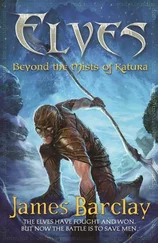CHAPTER I – A CO-PARTNERSHIP
“Put ’em up!” The face of Amos Nixon, red with the exertion of lifting the four little kegs from the dark recess beneath the broken roof of the old igloo, gradually assumed a greyish pallor, as he stared into the muzzle of the service revolver held in the hand of Constable Crowley, of the Mounted. Slowly, shakily, he elevated his hands above his head and rose from his knees beside the aperture. He spoke no word as the officer advanced and lifted the six-gun from beneath the out-bulged front of his shirt. There was no need for words. The facts spoke for themselves.
“You can put ’em down, now,” said Crowley, with an appraising glance at the kegs. “Sixty gallon, eh?”
“Lackin’ ten,” answered the other in a flat, toneless voice. “I draw’d off about ten gallon out of the keg that’s tapped.”
Stooping, the officer ended up the indicated cask, in the head of which a wooden plug had been driven into a boring. The faded blue eyes of the hooch-runner watched indifferently as Crowley placed his nose to the plug and sniffed its contents. Then, suddenly a flicker of hope glinted for a fleeting instant in the faded eyes. It was a little thing that had roused Nixon from the depths of despair into which his unexpected arrest had thrown him—a thing so insignificant that the eyes of most men would have given it no heed. Merely, that as Crowley had inhaled the odour of the liquor, he had unconsciously wetted his lips with his tongue.
“Might’s well eat, hadn’t we, before we pull out?” asked Nixon. “You’ll be takin’ me to Baker Lake, I s’pose.”
The officer nodded: “Yes, Baker Lake,” he answered, and: “I guess we might’s well eat.”
Nixon started toward his canoe which was drawn up on the bank of the river a few feet distant.
“Hold on!” The voice of Crowley halted him, and he turned. “Grub’s in my pack, here. Government’s goin’ to feed you fer quite a spell, might’s well begin now. Besides, you might make a mistake an’ grab up a rifle instead of a fryin’ pan out of yer canoe.”
A grin twisted the lips behind the scraggly beard as the man wagged a negative: “No, nothin’ like that. But you dig out the stuff while I make a fire.” A few minutes later, with the bacon sizzling in the pan, and the teapot snuggled against the little flames, Nixon extended a hand upon which the fingers twitched nervously: “Say, Constable, this here—it’s kind of throw’d me off. I didn’t figger none of the Mounted would be down here. I—I kind of got the shakes. Never had ’em yerself, I s’pose? But they’re hell. I was thinkin’, mebbe, if you’d kind of look the other way fer a minute, I’d knock out the plug an’ draw me off a shot. God knows I need it.”
Crowley nodded. “Go ahead. I guess they’ll be plenty left for evidence.”
Nixon loosened the plug with a billet of wood, and tilting the keg, allowed the liquor to splash into the tin cup which he held in his hand. Out of the tail of his eye he watched the face of Crowley, and again he noted that as the fumes of the liquor were borne to the man’s nostrils, he passed his tongue across his lips. With the cup three-quarters full, he returned to the fire and seated himself beside the officer. “Fetched this in clean from The Pas,” he vouchsafed, “an’ every mile I come, the safer I felt. After I’d got past Du Brochet I figgered I was all right. I cached the stuff here three months ago. Wisht I’d of tuk it on, then. But I run short of grub an’ tuk a run up to the coast, an’ when I gits back I rolls out the kags an’ finds myself lookin’ down a gun-bar’l from the wrong end. Not that I’m holdin’ it agin you. ’Taint your fault. I’d rather be in my shoes right now than yourn. Yous boys has got a hell of a job. Stuck off up here in this God-forsooken country, an’ nothin’ to do but walk an’ paddle, an’ paddle an’ walk, winter an’ summer. No fun, an’ dam’ little pay—an’ who gits the credit? Not yous boys that does the work. You git yer orders, an’ you hit out. If you do what yer sent to do, that’s all right—the Inspector gits the credit, an’ what do you git? You git some more orders, to go to hell an’ gone somewheres else, or mebbe it’s paint buildin’s, er play nurse to a lot of stinkin’ natives. An’, if you don’t do what yer sent out to do, you git bawled out.
“Take me, now. I’ll pay my fine fer this job—er mebbe do a little time, an’ the slate’s clean. An’ the next batch I run in pays back the fine, an’ a dam’ good stake to spare. If I do time, I git dam’ good wages fer settin’ around the jail an’ letting the Gov’ment pay my board an’ lodgin’. One batch a year’s a good livin’. Two batches, an’ I’m ridin’ high. An’ the rest of the time I can spend where I dam’ please. They hain’t no one tells me where to head in at. But, here I be shootin’ off my face, an’ grub’s ready. Say,” he exclaimed, extending the liquor to the officer, “how about you jinin’ me in a little shot? It’s on me. Here, take this, an’ I’ll draw me off another one.”
Crowley’s hand reached for the cup, then stopped: “Hell, I ain’t supposed——”
“Hain’t supposed to take a little drink! Don’t I know that? Who’ll ever find it out? Even if I was to squeal to the Inspector, would he b’lieve me, agin your word? I’ll say he wouldn’t! Go ahead, it won’t hurt you none. Dam’ me if I’d let any Gov’ment tell me I couldn’t take a little snort now an’ then! You work hard, an’ up here you don’t git a chanct to take a little drink every day.”
“Guess it wouldn’t hurst nothin’, at that,” answered Crowley, taking the cup. Nixon noted that the eyes of the other brightened as the strong liquor took hold. He sipped at his own drink, and took care that the conversation did not lag.
“Yessir, I’ve always got enough on me to pay my fine in cash money. I figger this here job’ll cost me about five hundred—an’ as soon as the jedge mentions it, it’s his’m, and I’m off. Well, I’ll be damned! If that there bacon hain’t shrunk up an’ burnt to a cinder—an’ us settin’ here shootin’ off our face.”
“Throw it out an’ cut some more,” advised Crowley, as he drained his cup.
Nixon complied, and picking up the two empty cups walked over and refilled them at the keg: “One drink hain’t worth a damn, nohow. This here hain’t stout enough to hurt us none, an’ we am might’s well be killin’ time till that bacon frys.”
Crowley accepted the cup without protest, his gaze resting on the kegs. “How much do you make on a batch like that?” he asked presently.
“Well, that’s accordin’,” answered the other. “It stands me five dollars a gallon at The Pas jest like it is. ’Course when I peddle it out I thin it down about half, an’ I git anywheres from five to twenty-five a quart fer it in fur. Accordin’ to who gits it, an’ how much fur they got to pay fer it.”
“Gosh A’mighty!” exclaimed Crowley, “I’ll say there’s a profit in it?”
“Sure they is. If they wasn’t, you wouldn’t see Amos Nixon into it. ’Course, there’s the resk. But I hain’t only be’n picked up three times in goin’ on twenty-five years, countin’ today.”
“My time’s up in a little over a year,” announced the officer.
“An’ I s’pose you’ll jine on agin’ fer another five years.”
“Well, I might. An’ then agin’, I mightn’t.” He sipped at his liquor and watched Nixon who had drawn from his pocket a fat roll of bills, and was engaged in counting them. Crowley saw that the bills were of large denomination. Before returning them to his pocket, the man separated them into two rolls. He looked up, apparently for the first time realizing that the officer’s eyes were upon him.
Читать дальше












